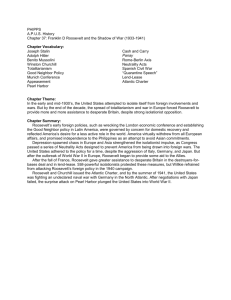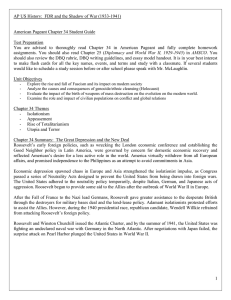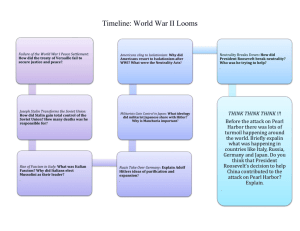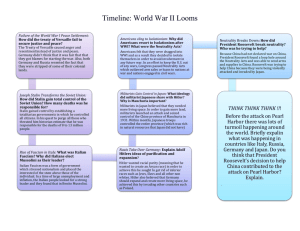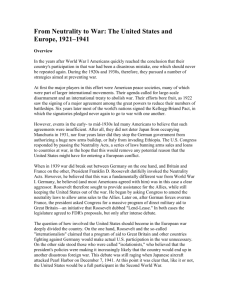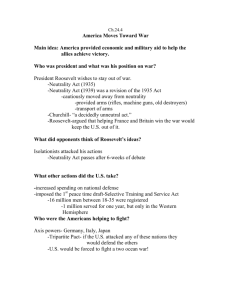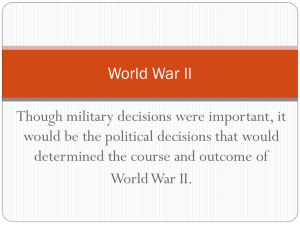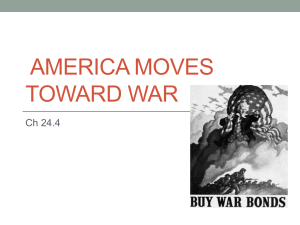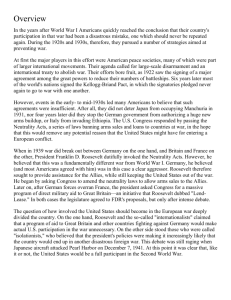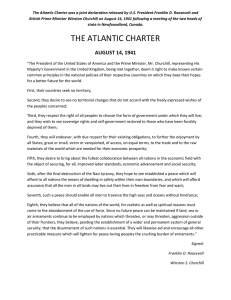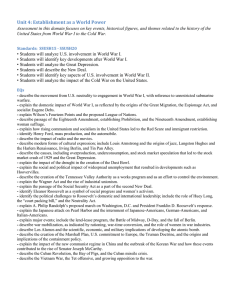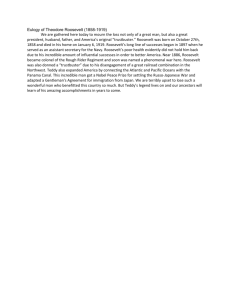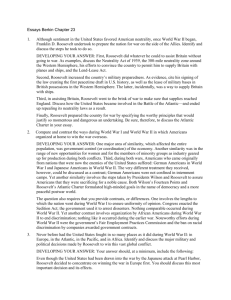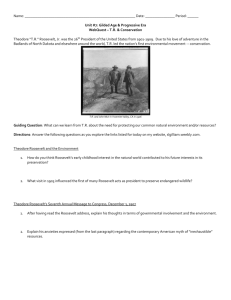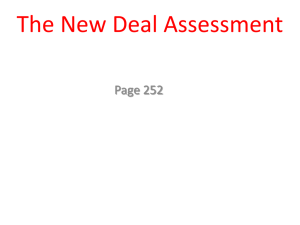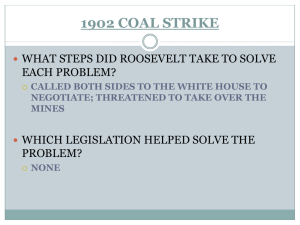Franklin D. Roosevelt and the Shadow of War, 1933-1941
advertisement
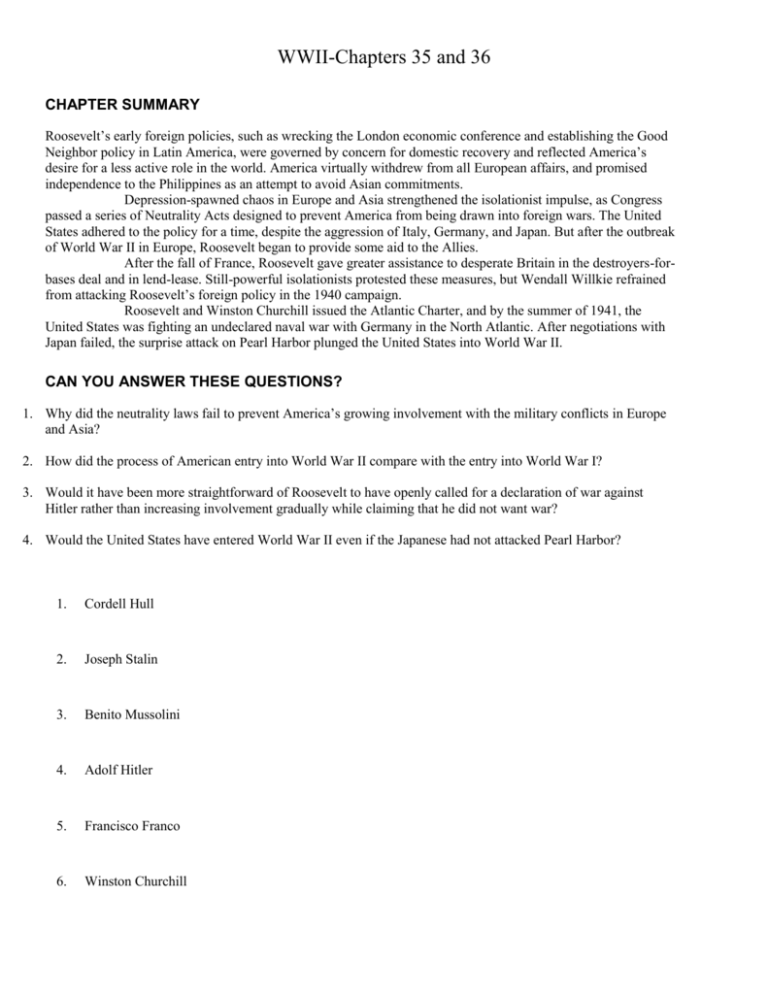
WWII-Chapters 35 and 36 CHAPTER SUMMARY Roosevelt’s early foreign policies, such as wrecking the London economic conference and establishing the Good Neighbor policy in Latin America, were governed by concern for domestic recovery and reflected America’s desire for a less active role in the world. America virtually withdrew from all European affairs, and promised independence to the Philippines as an attempt to avoid Asian commitments. Depression-spawned chaos in Europe and Asia strengthened the isolationist impulse, as Congress passed a series of Neutrality Acts designed to prevent America from being drawn into foreign wars. The United States adhered to the policy for a time, despite the aggression of Italy, Germany, and Japan. But after the outbreak of World War II in Europe, Roosevelt began to provide some aid to the Allies. After the fall of France, Roosevelt gave greater assistance to desperate Britain in the destroyers-forbases deal and in lend-lease. Still-powerful isolationists protested these measures, but Wendall Willkie refrained from attacking Roosevelt’s foreign policy in the 1940 campaign. Roosevelt and Winston Churchill issued the Atlantic Charter, and by the summer of 1941, the United States was fighting an undeclared naval war with Germany in the North Atlantic. After negotiations with Japan failed, the surprise attack on Pearl Harbor plunged the United States into World War II. CAN YOU ANSWER THESE QUESTIONS? 1. Why did the neutrality laws fail to prevent America’s growing involvement with the military conflicts in Europe and Asia? 2. How did the process of American entry into World War II compare with the entry into World War I? 3. Would it have been more straightforward of Roosevelt to have openly called for a declaration of war against Hitler rather than increasing involvement gradually while claiming that he did not want war? 4. Would the United States have entered World War II even if the Japanese had not attacked Pearl Harbor? 1. Cordell Hull 2. Joseph Stalin 3. Benito Mussolini 4. Adolf Hitler 5. Francisco Franco 6. Winston Churchill 7. totalitarianism 8. isolationism 9. London Economic Conference 10. Good Neighbor policy 11. Reciprocal Trade Agreement Act 12. Nazi party 13. Rome-Berlin axis 14. “merchants of death” 15. Nye committee 16. Neutrality Acts 17. Spanish Civil War 18. Hitler-Stalin nonaggression pact 19. “cash-and-carry” 20. Committee to Defend America by Aiding the Allies 21. America First Committee 22. lend-lease 23. Atlantic Charter 24. Philip Randolph 25. Executive order 1066 26. Korematsu v. U.S. 27. Japanese Internment 28. Dwight D. Eisenhower 29. Joseph Stalin 30. Harry S. Truman 31. Albert Einstein 32. War Production Board 33. Fair Employment Practices Commission 34. second front 35. Teheran Conference 36. D Day 37. V-E Day 38. Potsdam Conference 39. V-J Day
